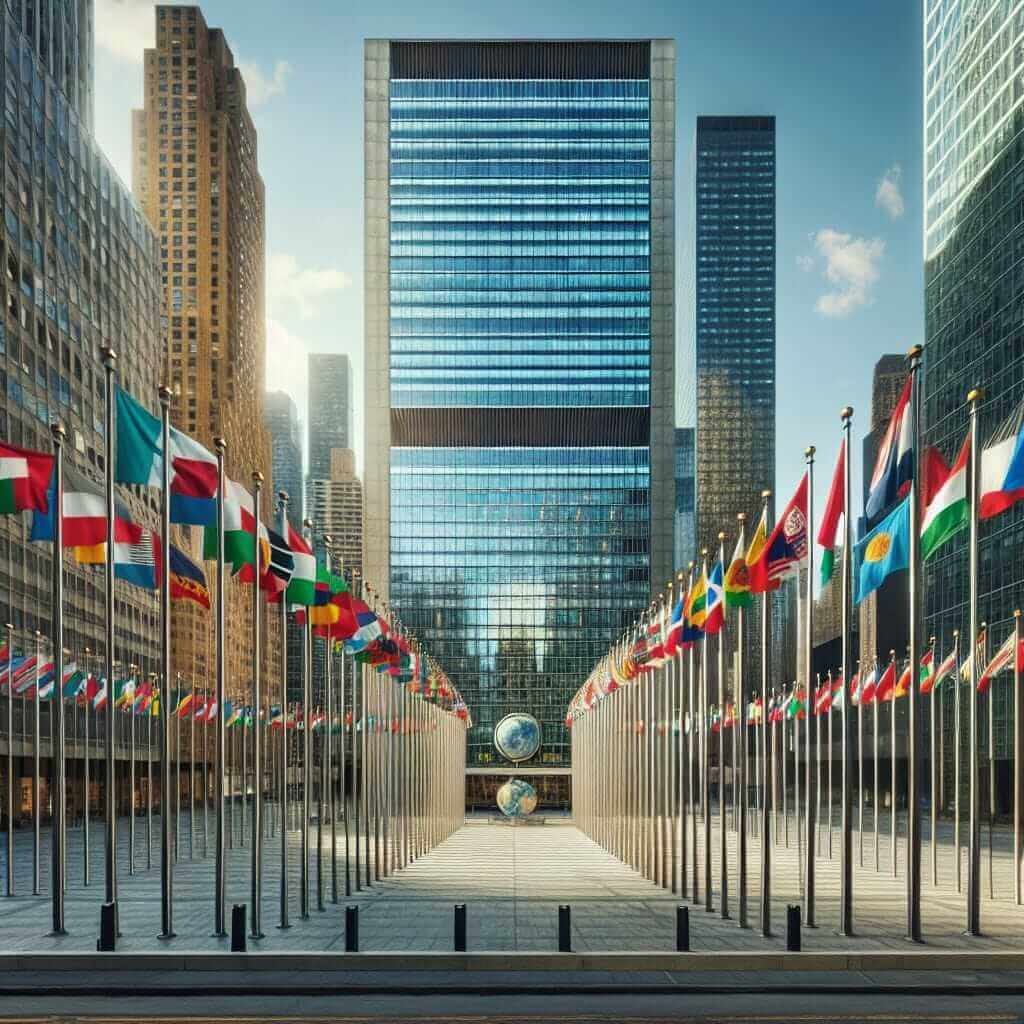“The role of international organizations in global governance” is a broad topic frequently appearing in IELTS Writing Task 2. It requires you to analyze the influence and effectiveness of international bodies like the United Nations, World Trade Organization, and others in addressing global issues.
This topic often overlaps with themes like international cooperation, global challenges, and the impact of globalization. Therefore, understanding related keywords (LSI keywords) is crucial for a well-rounded essay.
Some common LSI keywords include:
- Global governance: International cooperation, global challenges, multilateralism, international law, global institutions.
- International organizations: UN, WTO, IMF, World Bank, NGOs, intergovernmental organizations.
- Global issues: Climate change, poverty, conflict resolution, human rights, trade, pandemics.
Sample IELTS Writing Task 2 Questions
Based on past IELTS exams and common themes, here are some potential essay questions related to “The role of international organizations in global governance”:
- Some people argue that international organizations have too much influence on national governments. To what extent do you agree or disagree?
- International organizations play a crucial role in tackling global challenges. However, some believe their effectiveness is limited. Discuss both views and give your opinion.
- What are the main challenges faced by international organizations in promoting global governance, and how can these be overcome?
Sample Essay: Analyzing the Effectiveness of International Organizations
Let’s delve deeper into the second sample question:
“International organizations play a crucial role in tackling global challenges. However, some believe their effectiveness is limited. Discuss both views and give your opinion.”
Essay Analysis
This question requires you to present a balanced argument, examining both the significance and limitations of international organizations. You must:
- Acknowledge the crucial role: Discuss how these organizations address global issues (e.g., peacekeeping, poverty reduction, promoting human rights).
- Analyze the limitations: Explain why some people doubt their effectiveness (e.g., bureaucracy, lack of enforcement power, national sovereignty concerns).
- Provide your opinion: State your viewpoint on the overall effectiveness of these organizations, supporting it with relevant examples and reasoning.
Model Essay
International organizations have become increasingly prominent in our globalized world, tasked with addressing a myriad of challenges that transcend national borders. While their role in tackling issues like poverty, conflict, and climate change is undeniable, their effectiveness remains a subject of debate. This essay will explore both perspectives before concluding that while limitations exist, the importance of these institutions cannot be overstated.
Proponents of international organizations highlight their crucial role in coordinating global efforts. The United Nations, for instance, provides a platform for dialogue and diplomacy, aiming to prevent conflict and foster cooperation among nations. Its peacekeeping missions have played a vital role in mitigating violence and protecting civilians in volatile regions. Similarly, organizations like the World Health Organization (WHO) are instrumental in coordinating global health responses, as evidenced by their efforts during the recent COVID-19 pandemic. Through shared knowledge, resource mobilization, and coordinated action, these organizations can achieve outcomes that individual nations cannot.

However, critics argue that the effectiveness of international organizations is often hampered by inherent limitations. One significant constraint is the issue of sovereignty. Member states are often reluctant to cede power to supranational bodies, limiting the ability of these organizations to enforce decisions or impose sanctions. For example, the UN Security Council’s effectiveness is often hindered by veto power held by permanent members, leading to inaction or gridlock on critical issues. Furthermore, bureaucratic inefficiencies and a lack of transparency within some organizations raise concerns about accountability and effectiveness.
In conclusion, while acknowledging the limitations and challenges they face, the role of international organizations in global governance remains indispensable. Their ability to foster cooperation, mobilize resources, and provide a platform for dialogue is crucial in addressing transnational problems that require collective action. Addressing their shortcomings through reforms, increased transparency, and a renewed commitment to multilateralism is vital to ensuring their continued relevance and effectiveness in an increasingly interconnected world.
(Word count: 322 words)
Writing Tips
- Structure: Use a clear structure (introduction, body paragraphs presenting both sides, conclusion) to present a balanced and coherent argument.
- Vocabulary: Employ a range of vocabulary related to international relations, global issues, and governance. Avoid repetition and aim for precision.
- Grammar: Use a variety of sentence structures, including complex sentences, to demonstrate grammatical range and accuracy.
- Examples: Support your arguments with relevant examples of international organizations, global challenges, and their impact.
- Cohesion and Coherence: Ensure your essay flows smoothly with clear transitions between paragraphs and ideas. Use linking words and phrases to enhance coherence.
Vocabulary Builder
- Multilateralism (noun): /ˌmʌltɪˈlætərəlɪzəm/ – Cooperation between multiple countries.
- Supranational (adjective): /ˌsuːprəˈnæʃənəl/ – Having power or influence that transcends national boundaries or governments.
- Sanctions (noun): /ˈsæŋkʃənz/ – Penalties imposed by one or more countries on another country, typically for political reasons.
- Gridlock (noun): /ˈɡrɪdlɒk/ – A situation where no progress can be made.
- Accountability (noun): /əˌkaʊntəˈbɪləti/ – The state of being responsible for something and expected to explain your actions.
- Indispensable (adjective): /ˌɪndɪˈspensəbl/ – Absolutely necessary.
- Transnational (adjective): /trænzˈnæʃənəl/ – Extending or operating across national boundaries.
Further Practice
To enhance your understanding and writing skills, consider practicing essays on these related prompts:
- To what extent should developed nations assist developing countries in achieving sustainable development?
- What are the advantages and disadvantages of globalization for individual nations and the world as a whole?
- Discuss the role of non-governmental organizations (NGOs) in promoting human rights and addressing global issues.